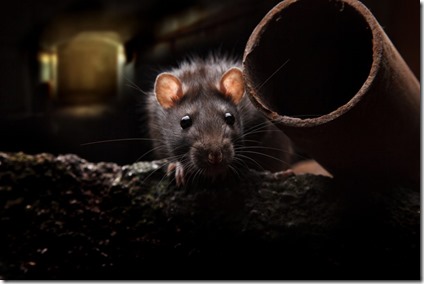“A scoffer does not like to be reproved; he will not go to the wise.” –Proverbs 15:12
This verse jumped out at me this morning. As I found myself interacting with the text I pictured the necessity of being an open book for people. Of willingly allowing myself and my ideas to be put under a microscope. I thought of C.S. Lewis’ scurrying rats:
On the other hand, surely what a man does when he is taken off his guard is the best evidence for what sort of a man he is? Surely what pops out before the man has time to put on a disguise is the truth? If there are rats in the cellar you are most likely to see them if you go in very suddenly. But the suddenness does not create the rats: it only prevents them from hiding. In the same way the suddenness of the provocation does not make me an ill-tempered man; it only shows me what an ill-tempered man I am. The rats are always there in the cellar, but if you go in shouting and noisily they will have taken cover before you switch on the light.” (Lewis, 164-65)
Lewis’ point is certainly fitting. When we are surprised by the light which comes into our lives we are often taken aback by what is exposed. Certainly, we must be people of integrity who are the same in the light as we are in the dark. But as I kept meditating on this text I realized that it’s saying something quite different.
This Proverb isn’t only encouraging us to be people of integrity so that if somebody were to rummage through our lives with a flashlight we’d embarrassed by their findings. Actually this verse is encouraging us to hire the flashlight brigade. Notice the movement of the text. A scoffer refuses to go to the wise. It says nothing about his integrity if exposed. It tells us that a person of wisdom will actually pursue those who would reprove us.
Then I started thinking about the SBC and our seeming unwillingness to pursue an independent counsel to look into our handling of sexual abuse cases. It’s not only that we’re afraid of the scurrying rats if the light was thrown on. It’s that we’re evidencing our standing as a “scoffer” by not willingly and vigorously pursuing those who might reprove our handling of sexual abuse victims within our denomination. The way of wisdom would call us to actually invite such exposure.
I found these words from Diane Langberg to be quite insightful and powerful:
We also dread the harm of exposure. What will happen if this truth is known? It will ruin the reputation of the group. Or worse, it will damage the name of Christ. ‘This is his work; we cannot ruin it.’ We believe institutions such as church and family are God ordained and therefore must be protected at all costs. So we cover and deny. (Langberg, 81)
So in our desire to protect our institution (to protect the name of Christ) we take the path of the scoffer. In the name of Jesus we block out the light and steel ourselves against the potential of reproof. The results are that we become hardened against the vulnerable and angry against those who would encourage us to walk in the truth. Langberg continues:
We would rather believe a reassuring lie than an utterly inconvenient and disturbing truth. We protect the system by shielding the accused. We say we do not want to falsely accuse. But we are not as adamant about the failure to protect victims. Vulnerable humans need protection in every human system. There is no system so godly that this is not true. Vulnerable ones need a voice, yet they’re easily discounted by virtue of their vulnerability. We give credibility to those who are not afraid, have confidence, and seem important to sustaining the system. We give more credibility to power. (Langberg, 81)
It would do us well, as institutions and individuals, to consider what areas of our lives and our systems that we’re not willing to run towards the microscope. If we’ll listen to our anger it can help us. Often it is those truth-tellers which stir us up to anger that will give us the key to understanding our blind spots.
The wise will pursue reproof. Scoffers will hide. Which are we? Will we turn off the lights and try to pretend the rats aren’t there? Or will we hire exterminators to not only shine a light but actually help us fix the issue? I fear that if we turn off the light of truth over our denomination, many of our churches within will be turning off their own lights.
